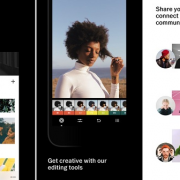-
On-demand apps
In 2018, users around the world were accustomed to using On-demand apps, such as Grab and Uber. In addition to mobility, On-demand apps are dominating other types of services like cleaning, shipping, laundry, shopping or making appointments, etc.
The trend will continue to grow as users enjoy the convenience, speed and payment methods offered through On-demand apps for everyday tasks.
-
The spread of mobile payments
 Mobile payments and payment gateways are becoming increasingly important, as the number of users who buy online increases steadily every year. E-commerce, travel booking services, on-demand applications all depend on mobile transactions.
Mobile payments and payment gateways are becoming increasingly important, as the number of users who buy online increases steadily every year. E-commerce, travel booking services, on-demand applications all depend on mobile transactions.
This growth of mobile payments will impact further security, as brands will have to ensure secure encryption while deploying mobile wallets and payments in their applications.
-
Mobile cloud computing (Mobile Cloud Computing)
According to IDC, nearly half of IT spending in 2018 is for Cloud. In 2019, we will continue to witness the growing number of Cloud tools and services. Growth will include software, infrastructure or service-type platforms (Software-as-a-Service, Infrastructure-as-a-Service and Platform-as-a-Service).
With mobile cloud solutions (MCC), the idea is to provide rich mobile applications and a seamless user experience across multiple devices. This will benefit companies who want to serve their users on mobile devices, but need more computing power and speed, which may slow down the experience on these devices. A prime example is mobile health care applications that need information processing print to provide remote diagnostics as part of their service.
-
Accelerated Mobile Pages
Download speed is still an important factor for mobile users.
To improve it, Google introduced accelerated mobile pages. This is an open source project to improve mobile browsing experience. You can easily tell that AMP-based websites are searching Google on mobile devices, as they are marked as such.
Web developers, businesses and publishers will need to consider this solution, as it not only improves the user experience on mobile devices but also the SEO factor in Google.
At the same time, developing and maintaining AMP will be cheaper than building a native or hybrid mobile application.




